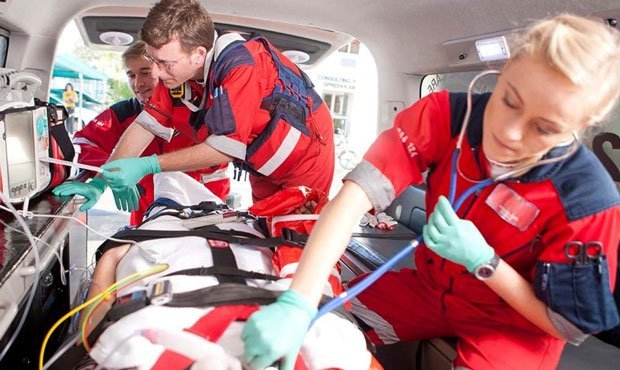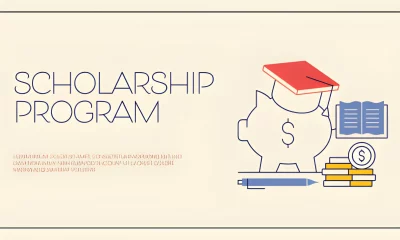career
Complete Guide on How To Become A Pharmaceutical Rep In 2023
In recent years, the pharmaceutical industry has seen significant growth, and this trend is expected to continue in 2023 and beyond.
As the demand for new drugs and treatments increases, so does the need for pharmaceutical representatives who can effectively market and sell these products to healthcare professionals.
If you are interested in a career as a pharmaceutical rep, it is essential to understand the qualifications, skills, and experience required to succeed in this competitive field.
This complete guide will provide you with a step-by-step approach to becoming a pharmaceutical representative in 2023, including education and training requirements, job duties, and strategies for landing your first job in this rewarding and challenging industry.
Whether you are a recent graduate or an experienced sales professional looking to transition into the pharmaceutical industry, this guide will provide you with the information and resources needed to achieve your career goals.
Who is a Pharmaceutical Rep?
A pharmaceutical rep or sales rep (PSR) is a healthcare professional who educates physicians and other healthcare professionals on new pharmaceutical breakthroughs.
PSRs are tasked with selling the pharmaceutical items of a corporation.
Pharmaceutical reps train doctors on the drugs and treatments required to provide cutting-edge care to their patients.
Physicians, pharmacists, healthcare facilities, and patients are among the providers.
They also persuade medical specialists that the pills, therapies, and equipment they provide are ideal for patients and superior to competitors’ medications.
Pharmaceutical representatives understand how drugs can have a positive or negative impact on the human body.
They are also familiar with the drugs used to treat each sickness or condition.
PSRs must have a good foundation in pharmacology to answer inquiries about how pharmaceuticals function, adverse effects, and interactions with other medications.
Pharmaceutical sales representatives specialize on a single class of pharmaceuticals in order to have a comprehensive knowledge of products.
Must Read: How To Become a Registered Nurse| The Easiest Step by Step Guide
In general, a Pharmaceutical Rep’s responsibilities include the following:
- Arranging and attending meetings in a certain area.
- Leads are being tracked and new clients are being sought.
- Building connections at conferences and events.
- Providing continuing education opportunities for healthcare workers.
- In charge of monitoring the use of pharmaceutical items and prescription patterns.
- Surveying people’s reactions to new medications.
How long do I have to go to school to become a pharmaceutical rep?
Although you can become a pharmaceutical representative without any formal education, a bachelor’s degree will help you develop in your career.
PSRs with a bachelor’s or graduate degree in life sciences from a reputable university are typically hired by pharmaceutical companies.
The bachelor’s degree program in pharmaceutical sciences is four years long.
A graduate degree, such as a Master of Public Health, Master of Health Science, or Healthcare MBA, is also an option.
How much can I make as a pharmaceutical rep?
The median annual income of entry-level pharmaceutical sales reps in the United States is $122,107, according to the Pharma Sales Salary Report. Specialist pharmaceutical sales professionals earn a higher yearly salary of $138,150.
Pharmaceutical sales agents with more than 20 years of experience earn an average annual salary of $154,283.
PSRs who graduate to executive roles earn an annual salary of $200,455.
PSRs working at small pharmaceutical businesses, on the other hand, make less than $119,933 per year.
A pharma rep in a multinational pharmaceutical company can earn up to $133,407 per year.
What is the job outlook of pharmaceutical reps?
The employment of pharmaceutical representatives is predicted to expand by 4% between 2019 and 2029, according to the US Department of Labor Statistics. This is the average growth rate for all jobs.
Experienced PSRs who can keep up with the industry’s rapid changes and interact well with other healthcare professionals are in high demand.
Furthermore, pharma salespeople with graduate degrees in life sciences, business, or statistics are in high demand.
Trending: Steps on how to secure a job as Forest Nursery Worker at PRT in Canada
How can I become a Pharmaceutical Rep?
If you want to be a pharmaceutical representative, here are the measures you need do to have a rewarding career:
1. Get your high school diploma or GED.
The first step toward a career as a pharmaceutical sales representative is to obtain a high school diploma or GED.
While earning a degree in college, you must have a high school diploma or GED, which is a crucial requirement for a position in a pharmaceutical firm.
Hence, when studying for your high school graduation or GED, prioritize chemistry, anatomy, biology, and public speaking.
You may be asking why you should do public speaking.
Because the profession entails meeting and conversing with new and returning clients on a daily basis, public speaking will help you polish your communication skills.
2. Complete a bachelor’s degree
While there are no prerequisites for becoming a pharma salesperson, most firms prefer people with bachelor’s degrees.
A bachelor’s degree will demonstrate to employers that you understand how drugs function, their adverse effects, and any combinations with other prescriptions.
You will gain a good understanding of science if you study pharmacology in college or university.
You should study pharmacology, chemistry, biology, medicine, maths, and statistics more.
A business management course will assist you in honing your sales and negotiating abilities.
A bachelor’s degree in pharmacology demonstrates to pharmaceutical businesses that you can understand new products and communicate with physicians in the language of the company.
3. Considering acquiring a graduate degree
While a graduate degree is not required for the position of pharma rep, most organizations prefer graduate degree holders.
You must have a bachelor’s degree from a recognized university and pass the Graduate Records Examination (for science programs) or the Graduate Management Admissions Test to apply for a graduate degree (for business programs).
A Master’s in Business Administration or MBA would be an excellent choice for the graduate degree in this profession.
4. Get on-the-job training as well as continuing education credits
When some pharmaceutical businesses hire new pharma salespeople, they provide them with on-the-job training.
Furthermore, pharmaceutical corporations provide new sales representatives with tuition reimbursement for ongoing pharmacology and life sciences education.
5. Get certification
Candidates must finish an accredited training program and pass an exam after earning a graduate degree.
Almost 300 institutions offer the program online. Candidates who pass the exam will have access to the NAPRx Career Center.
The NAPRx Job Center is a government website where pharmaceutical businesses post job openings.
The National Association of Pharmaceutical Representatives can certify you as a Certified National Pharmaceutical Representative (CNPR) (NAPR).
Pharmaceutical sales agents can obtain optional accreditation through the NAPR.
With the CNPR license, PSRs receive more skills and information to help them succeed in their roles.
The certification will educate pharmaceutical representatives on the norms and regulations that govern medicine distribution and sale.
It will also provide students with a thorough understanding of Managed Care.
This Managed Care allows pharmaceutical sales professionals to explain to doctors the prescription payment process and sales strategies.
6. Build Connections
The next important step is to look for positions in pharmaceutical businesses once you’ve become a Certified National Pharmaceutical Representative.
You will begin your job search by networking or making connections with professionals in the field.
These professionals aid in job placement because most pharmaceutical companies prefer people with references to fill vacancies.
This is due to the fact that these pharmaceutical businesses do not usually promote job openings.
As a result, make it a point to attend conferences and meetings.
Some cities have chapters of the Pharmaceutical Representative Association that meet on a regular basis.
When you attend these sessions, you will have the opportunity to learn more about the pharmaceutical sector.
You will meet with other healthcare professionals at one of the meetings and inform them that you are a certified PSR.
If there is a job opening where they work, you can give them your business card or résumé.
Most pharmaceutical businesses, on the other hand, pay their staff a finder’s fee whenever they refer a candidate who is hired by the company.
You will encounter a fellow pharma sales professional who will suggest their company to you at conferences and meetings.
If you are unable to attend meetings or conferences, you might inquire with local doctors, hospitals, and pharmacies to see if they require a pharmaceutical sales representative.
7. Improve your skills
While a graduate degree will go you far in your career, learning some essential skills will help you succeed.
A pharmaceutical representative’s job demands constant touch with patients.
As a result, you’ll need to improve your communication abilities in order to establish a better strategy for your customers.
You will also learn how to properly manage your time.
Remember that you will be dealing with a large number of consumers who may not have the patience to wait while you attend to a customer.
You should also learn to be on time all of the time.
Knowing how to showcase your products to customers in such a way that they are impressed can make your job more fulfilling.
When you display your items in a way that persuades buyers, they will promote them to other customers.
You should also consider speaking to other professionals about your items at meetings or conferences.
8. Create a resume and cover letter
Because of the discovery of new treatments, the pharmaceutical sector grows year after year, making pharma salespeople in high demand everywhere.
As a result, the industry is highly competitive.
Given the industry’s competition, you’ll need to develop a really engaging resume and cover letter.
A strong CV and cover letter will highlight your talents and abilities to potential employers.
Make sure your résumé is filled with accomplishments.
Also, ensure that it fits to the requirements of the function and the aims of the organization to which you are applying.
See Also: Complete Guide on How To Become a Certified Health Coach
Conclusion
In conclusion, becoming a pharmaceutical representative in 2023 requires a combination of education, experience, and personal skills.
It is a competitive field that demands a strong work ethic, the ability to communicate effectively, and a passion for healthcare.
By following the steps outlined in this guide and staying up-to-date with industry trends and regulations, aspiring pharmaceutical reps can position themselves for success in this rewarding and challenging career.
With dedication and hard work, the opportunities for advancement and personal growth are limitless.
Click the button below to Gain Access to our Members’ Exclusive Group, before it fills up again.
Gain Access Now!
See what others are reading:
- Top 20 Fastest Growing Nursing Careers You Should Consider
- Retail sales Rep. at Sioux Lookout Home Hardware Building Centre
- Australian Rotary Health PhD Scholarships



















